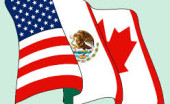Johannah Bernstein post: "eternally proud of my father’s extraordinary aeronautical engineering. legacy. here is a photo of the Canadair Water…
Wednesday Night #2070
Written by Diana Thebaud Nicholson // November 17, 2021 // Wednesday Nights // Comments Off on Wednesday Night #2070
COP26 ended on Saturday with an agreement that has been greeted with mixed reactions by proponents and opponents alike. While there was not the same blanket coverage of ministers Steven Guilbeault and Jonathan Wilkinson as when Catherine McKenna was all over the Paris COP, other Canadians were in the limelight.
Canadian photojournalist Jo-Anne McArthur won the Earth Project’s COP26 photography competition with her stunning animal shots.
and
BrainBox AI Next Phase Awarded the Top Innovation at 26th United Nations Climate Change Conference
[Montreal-based] BrainBox AI, a leader in autonomous building technology, shared plans for the future and presented a pilot project of its next innovation at the 26th United Nations Climate Change Conference, COP26. Applying the latest autonomous AI technology, BrainBox AI is developing a solution that addresses the energy transition challenge by creating energy demand flexibility from a cluster of diverse commercial buildings.
B.C. is staging a dramatic follow-on to COP26 with what is being termed the worst storm of the century as flooding has prompted declaration of the provincial state of emergency. Communities have been evacuated and washed out B.C. rail lines, roads add to supply chain woes. Vancouver is currently cut off from the rest of the country by land.
The federal government is deploying troops to B.C. ; air support personnel will help with evacuation efforts, to support supply chain routes, and to protect residents from floods and landslides.
Presidents Biden and Xi met virtually for three and a half hours on Monday
Biden, Xi stick to their positions but turn down the heat in three-hour talk
U.S. President Joe Biden pressed his Chinese counterpart on human rights in a video call lasting more than three hours, while Xi Jinping warned that China would respond to provocations on Taiwan, according to official accounts of the exchange. Commentators’ reactions are mixed. The Economist says Talks between Xi Jinping and Joe Biden do not herald a thaw. The two presidents spoke about managing dangerous tensions, but an ice age looms. Others stress that the tenor of the meeting was civil if not overwhelmingly cordial.
Jeremy Kinsman and Larry Haas are both encouraged, noting that it is a good sign when talks of this nature go over their set time and stressing that, like it or not, the countries’ economies are codependent.
Meanwhile, Josh Rogin writes in the WaPo that the Biden administration will soon announce a diplomatic boycott of the Beijing Olympics, thus signalling displeasure with the Chinese government’s human rights abuses without impacting U.S. athletes.
Other challenges abound. US Secretary of State headed to Africa on Tuesday in an attempt to resolve deepening conflicts in Ethiopia and in Sudan and counter growing insurgencies elsewhere, including -though not specifically mentioned- Burkina Faso.
The Poland-Belarus border crisis does not show signs of diminishing although recent news indicates that some migrants have been moved away from the border to shelter from the cold. As Leonid Ragozin writes in Al Jazeera “it is not only its neighbours to the west that Minsk is seeking to pressure. The border crisis is part of its larger strategy to blackmail both the West and Russia with the prospect of a full-out global conflict. Belarus is the closest ally of Russia and officially a part of an entity known as the Union of Russia and Belarus. The latter exists largely on paper, but it does provide for a common defence policy and free movement between the two countries, which means the Belarusian border with Poland and the two Baltic states is effectively Russia’s external frontier separating its security zone from the realm of NATO.”
And just to keep the world guessing -not to mention annoyed- Russia carried out a missile test that blew up one of its own satellites, creating debris that forced the ISS crew to shelter in capsules. “…there are now roughly a million objects running around up there uncontrolled in the size range of 1cm (0.4in) to 10cm. An impact from any one of these could be mission-ending for a vital weather or telecommunications satellite. Nations need to be clearing up the space environment, not polluting it still further.”
President Biden and the Democrats are going through a rough patch. Despite the passage of the Infrastructure Bill in a thorough round-up of polling and informed political opinion, Thomas B. Edsall argues convincingly that “The rise of inflation, supply chain shortages, a surge in illegal border crossings, the persistence of Covid, mayhem in Afghanistan and the uproar over “critical race theory” — all of these developments, individually and collectively, have taken their toll on President Biden and Democratic candidates, so much so that Democrats are now the underdogs going into 2022 and possibly 2024.(Democrats Shouldn’t Panic. They Should Go Into Shock.)
 On Thursday the Leaders of the “Three Amigos” will meet for the first time in five years. Colin Robertson’s analysis (see long reads below) adds this cautionary note: “It’s not that Joe Biden doesn’t like Justin Trudeau, whom he once described as a champion of liberal internationalism. Biden sees Canada as a friend and ally, words repeated last week by Secretary Blinken on meeting [GAC Minister Melanie] Joly. In the new geopolitical contest of authoritarianism encroaching on democracies, the Americans see us as kindred spirits. But when it comes to trade, Biden leads a party that has a deep ideological belief in protectionism as the only way to defend American jobs. For Canada, this means practising patient, astute diplomacy (emphasis added). We must find ways that respond to the needs of the administration, especially on China and continental security, while actively reminding Congress that jobs in their districts depend on trade and investment with Canada.” It will be interesting to see who is at Trudeau’s side for this meeting – neophyte Joly, according to Politico’s Ottawa Playbook which also details the PM’s busy Wednesday schedule including an appearance at the Canadian American Business Council’s annual State of the Relationship gala – who knew? Deep reassuring breath; Chrystia Freeland is also with the PM.
On Thursday the Leaders of the “Three Amigos” will meet for the first time in five years. Colin Robertson’s analysis (see long reads below) adds this cautionary note: “It’s not that Joe Biden doesn’t like Justin Trudeau, whom he once described as a champion of liberal internationalism. Biden sees Canada as a friend and ally, words repeated last week by Secretary Blinken on meeting [GAC Minister Melanie] Joly. In the new geopolitical contest of authoritarianism encroaching on democracies, the Americans see us as kindred spirits. But when it comes to trade, Biden leads a party that has a deep ideological belief in protectionism as the only way to defend American jobs. For Canada, this means practising patient, astute diplomacy (emphasis added). We must find ways that respond to the needs of the administration, especially on China and continental security, while actively reminding Congress that jobs in their districts depend on trade and investment with Canada.” It will be interesting to see who is at Trudeau’s side for this meeting – neophyte Joly, according to Politico’s Ottawa Playbook which also details the PM’s busy Wednesday schedule including an appearance at the Canadian American Business Council’s annual State of the Relationship gala – who knew? Deep reassuring breath; Chrystia Freeland is also with the PM.
On the other side of the world, Bloomberg is hosting The fourth annual Bloomberg New Economy Forum November 16-19 in Singapore. The prologue is optimistic “Even as the pandemic still rages, the success of groundbreaking mRNA vaccines, the acceleration of the digital economy during lockdowns, and a focus on government spending to save lives and improve livelihoods demonstrate that humankind is capable of taking on — and overcoming — great challenges. Breakthroughs are possible. In science and technology, we’ve entered a new age of discovery.” As might be expected, the speakers list is filled with glitterati the likes of Bill Gates, Tony Blair, Henry Kissinger, Hank Paulson, Kevin Rudd and many, many more CEOs. The moderators are all Bloomberg people with two exceptions: Ian Bremmer, who is an advisory board member and —- Gerald Butts, who is now vice chairman of the Eurasia Group. When did that happen?
It has not been a good week for Quebec English-speakers, Air Canada, or several other Quebec-based companies doing business internationally -and certainly not for organisations like Montreal International who work so hard to attract businesses to set up in Montreal.
Andrew Caddell‘s column Michael Rousseau is the gift that keeps on giving for François Legault starts “François Legault must be thanking his lucky stars. In the midst of a coroner’s inquiry into mass deaths at a seniors’ home in Montreal, and a focus on the highest per capita death toll in Canada from COVID-19, along came Michael Rousseau to save him.” He continues: “The premier should have been jumping for joy. His proposed new language law, Bill 96, had just been panned by several business groups in committee hearings at the Quebec National Assembly, as well as being eviscerated by the anglophone community for its heavy-handedness. Then the unilingual CEO of one of Canada’s most prominent corporations undid all those arguments in one breath.” And now the witch hunt is on.
Canada the not-so-good?
Offshore ‘mastermind’ ran $300M ‘shadow bank’ for clients’ tax-haven money, draft CRA report says
Scores of wealthy Canadians had access to a Vancouver-based “shadow bank” that they used to buy homes, vacation properties, cars and airplane tickets with funds stashed in tax havens, according to a confidential draft report by the Canada Revenue Agency.
The organization allegedly operated stealthily for years and was designed to hide money from authorities.
Varia
Two unrelated, equally fascinating pieces about unusual crime-fighting uses of DNA
Trees fight back: First-ever use of tree DNA in prosecution sends poacher to prison
They’re under threat from the effects of climate change and raging forest fires — and this week they have ensured the person behind an illegal logging operation will be imprisoned for 20 months.
Justin Andrew Wilke, 39, and a crew of associates were found to have conducted an illegal logging operation in the Elk Lake area of the Olympic National Forest, between April and August 2018. The group removed highly prized maple trees — used to produce musical instruments such as violins and guitars — and forged permits to sell the wood.
At the trial, a research geneticist for the U.S. Agriculture Department’s Forest Service testified that the wood Wilke sold was a genetic match to the remains of three poached maple trees that investigators had discovered in the Elk Lake area
How Your Family Tree Could Catch a Killer
Genetic genealogists like CeCe Moore are cracking cold cases and transforming policing. As DNA analysis redefines ancestry and anonymity, what knowledge should we be permitted to unlock?
In the nineteen-nineties, policing was revolutionized by forensic DNA analysis, which could identify criminals from biological evidence. The F.B.I. created a national DNA database of convicted offenders, and another for missing persons and for samples taken at crime scenes. Together, they would aid in the investigation of more than half a million crimes.
… several prominent genealogists —nearly all women— have combined the study of ancestry with genetics to forge a powerful new policing tool. Moore leads a team of three at Parabon. They have helped resolve more than a hundred and fifty criminal investigations since 2018—averaging about one a week. No other group using genetic genealogy, not even one within the F.B.I., has documented more successes.
Long reads
Colin Robertson‘s thorough analysis for Policy The Three Amigos: Getting North America in Gear Again
Addressing the trade-off between lower drug prices and incentives for pharmaceutical innovation
…the dilemma facing policymakers is perceived to be that controlling drug prices now necessarily means fewer new drugs tomorrow.
The trade-off between prices and innovation need not be this stark and, in fact, is likely avoidable. There are ready policy options that can allow us to meet the goals of both controlling prescription drug costs and promoting investments in innovative new therapies that can make us healthier.
Anne Applebaum writes in The Atlantic that The Bad Guys Are Winning
If the 20th century was the story of slow, uneven progress toward the victory of liberal democracy over other ideologies—communism, fascism, virulent nationalism—the 21st century is, so far, a story of the reverse.



